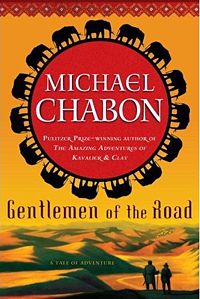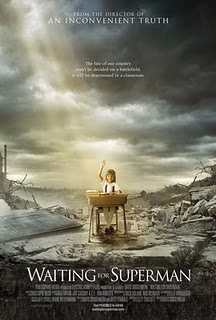I've been wrestling with how to do this successfully in my own survey of Western music and how to deal with issues of power structures in music for some time so the workshops have been interesting to me. We had reading assignments for tomorrow, including the book You Can't Teach What You Don't Know, and we had to write a reaction essay. I thought others might find it interesting and perhaps thought provoking as well, so I offer my response to the text:
Perhaps it is because I have a 2-year-old at home who is obsessed with trains, constantly crashing them, taking them apart, and putting them back together, or perhaps it is just the beauty of the phrase, but Gary Howard’s description of the mental state that occurs in White teachers when we begin to confront the legacy of our privilege as a “train wreck in the mind” has resonated throughout me for several days. Elsewhere in his book We Can’t Teach What We Don’t Know he describes the experience of Whites recognizing White privilege as fish realizing they are swimming in water, and while a beautiful metaphor, it does not hold the same power for me. I believe my attraction to the phrase exists because it more accurately describes my current state as a teacher and human – I recognize and have long recognized that I am swimming in the wide ocean of White privilege, but I haven’t allowed the train of my life to come off the tracks enough to being to be a solution to the problem. I haven’t allowed my knowledge to crash through into experience.
We live in an age where White men and women are beginning to push back against the sea of change that has engulfed our nation over the past forty years. Many of us as White educators have felt so put upon by the emphasis on multicultural education, have felt so blamed for the sins of our fathers, that we have begun reacting negatively against implementation of this type of equality. This reaction is most notably present in the linguistically interesting phrase “reverse discrimination,” where we take up the blame game and point the finger back at other races, claiming that they are now discriminating against us. To justify this stance, I have heard my colleagues say, and have said myself, that I am a colorbind teacher, treating all my students equally, so why can’t everyone else. My personal mantra has been that race is a social construct and we are moving past it. But as Gary Howard so eloquently points out, such stances are merely symptoms of our engrained privilege:
Many privileges have come to Whites simply because we are members of the dominant group: the privilege of having our voices heard, of not having to explain or defend our legitimate citizenship or identity, of seeing our images projected in a positive light, of remaining insulated from other people’s realities, of being represented in positions of power, and of being able to tell our own stories. These privileges are usually not earned and often not consciously acknowledged. That our privileged dominance often threatens the physical and cultural well-being of other groups is a reality that Whites, for the most part, have chosen to ignore. The fact that we can choose to ignore such realities is perhaps our most insidious privilege. (Howard, 66)
I appreciated Howard’s approach because he was able to short-circuit knee-jerk reactions to the laying of blame and move on towards a goal of healing. My train has stayed firmly on the track of White privilege even while I decried its effects because I felt blamed. I’ve been stuck in what he labels the “Disintegration stage,” where I’ve been attempting to create the illusion that racism is a construct that can be overcome without direct action by ignoring it. But both race and racism are reality for most people in our country and need to be addressed. We need to see people for who they are, and by claiming that we are colorblind, we are in effect saying we cannot see them. The way forward, at least according to Howard, is the personal creation of an authentic White identity that acknowledges the reality of personal, cultural, and institutional racism and seeks to learn from all groups of people while developing deep personal relationships and interactions with people “across the boundaries of difference.” This notion was a great source of healing and a breakthrough in my thinking. I’m not sure at this point if I fully agree with all his stages of the development of White identity, but I do recognize the potential power in the outcome. It was encouraging and inspiring to believe that teaching actually can make a dent in the hegemonic culture we currently sustain, to see ways to make my teaching effective for all races, genders, and orientations that walk into my classroom, and to know that I can begin breaking down dominance by giving voice to all students and learning from them as much as they learn from me. Forming a way of teaching, and indeed any personal relationship, that is authentic, culturally responsive, and culturally competent is a high goal, but Howard’s great gift in his book is to demonstrate a way to approach it with grace and humility.




5 comments:
"We need to see people for who they are, and by claiming that we are colorblind, we are in effect saying we cannot see them."
I love this phrase because it goes along with what Michael and I have been talking about since he began teaching in a VERY racially mixed school (Mostly blacks, Hispanics, and Asians. Very few whites.) He walked in the first day and said, "I am a white, suburban redneck. What could we possibly have in common?" Of course he went on to say that he recognizes the differences but that they can have a good year of learning despite them. The students have really responded to this. He doesn't pretend to be colorblind; he recognizes the differences and quite a few students discuss and even joke about it with him, and because of that, he is getting through to them. It's so interesting to hear his stories. Thanks for sharing; this was very interesting.
"We need to see people for who they are, and by claiming that we are colorblind, we are in effect saying we cannot see them."
A long time ago, I read a short story about two people on a road. One took the left fork, the other the right. The person on the right fork walked on, and got to a building at the end of the road. Inside, he (universal he) was surrounded by a lot of people, but they were all shades of gray - no way to distinguish them as different from anyone else. The person on the left fork walked on and found another big building, and it was full of people in vibrant hues, and shades, and colors, to dazzle the eyes.
Whenever I hear people talk about being color-blind, I think of the person on the right fork. I wonder if he ever wished he'd taken the other fork? I prefer the left fork, but then, as a person of color, I don't really have the option of being color-blind.
Your reactions makes the book so intriguing - I am going to check it out.
But it is interesting that many education classes teach that we should see our students as all the same, an idea that seems great on the surface, but in reality shuts many people out of the process. Etta, Michael might like the book since he's attempting to be so authentic and open with his students. While it doesn't offer practical kinds of solutions, it does offer a framework from which to work.
I'm so glad you posted this. It hits on so much of how we try to figure out how to teach history. I have been criticized for giving too much of a "feminist" (whatever that actually means, I am often left to ponder) perspective. My response is that I am a woman therefore it is what stands out to me. (And now based on what you wrote I can add...it's what I know). Granted those criticisms came from students at a small, predominantly white, conservative, religious school. I guess I should wait to see what the liberal-loving students I have now have to say. :)
The idea of colorblindness as an ideal to which I loftily held had a pretty good hold in my brain until a little while ago, when several things I was reading started beating it out of my head. Given our positions, it's painful moving beyond that to actually grappling with the issues of race, gender, and class that are all around us, and would be much more comfortable to sink back into the soft pillow of our privilege.
Post a Comment